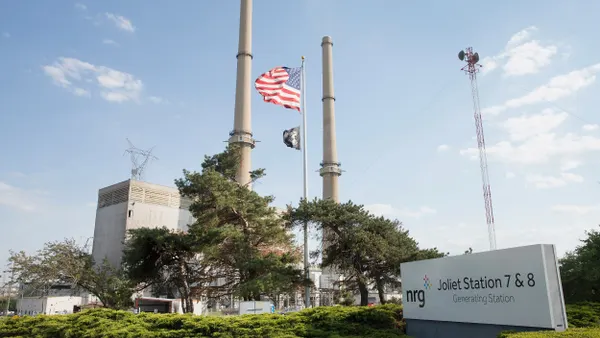Solar’s real and whole value could be over $0.33 per kilowatt-hour (kWh), according to an extensive new study done for Maine’s legislature.
That number means that, according to the study, solar energy priced at or below the $0.33 per kWh mark would deliver societal benefits and should be purchased, but the applied value will not be certain until Maine’s legislators and regulators decide which solar costs and benefits should be in the final valuation.
“The biggest takeaway is not that regulators should create a $0.33 per kWh offset value,” explained Pace Energy and Climate Center Executive Director Karl Rabago, co-author of the "Maine Distributed Solar Valuation Study."
“The study creates a menu of values," he said. "It tells you that if you can get solar for less than $0.33 per kWh, then from this estimation of the values, you will be getting a good deal and a lot of benefits.”
The study and how it can be used
The statutorily-mandated study’s menu is made up of 13 cost-benefit factors in five categories.
The first eight are Avoided Market Costs and are relatively straightforward bill factors: Avoided Energy Cost, Avoided Generation Capacity Cost, Avoided Residential Generation Capacity Cost, Avoided Natural Gas Pipeline Cost, Solar Integration Cost, Transmission Delivery, Avoided Transmission Capacity Cost, Avoided Distribution Capacity Cost, and Voltage Regulation.
The last five are Societal Benefits more commonly regarded as externalized factors but they are emerging as important parts of the solar value equation: Net Social Cost of Carbon, Net Social Cost of SO2, Net Social Cost of NOx, Market Price Response, and Avoided Fuel Price Uncertainty.
The study provides a calculated one-year value and a 25-year levelized value for CMP customers. Avoided Market Costs are valued at $0.09 per kWh for one year and at $0.138 if levelized over 25 years. The Societal Benefits are valued at $0.092 per kWh for one year and at $0.199 per kWh over 25 years. That puts the one-year total value at $0.182 per kWh and the 25-year value at $0.337 per kWh.
“If legislators believe that $0.33 per kWh number is the big picture, whether or not it is appropriate for ratemaking, then they can be confident solar at less than that will bring net benefits to Maine and, over the long run, put downward pressure on rates and on the state budget,” Rabago said. “If they can get a $0.33 per kWh item for $0.13 per kWh, they should buy it all day long.”
$0.13 per kWh is the typical Maine electricity rate.
The study also offers legislators an opportunity to move electricity policy and rate making forward, he added. “Up to $0.33 per kWh could be offered as an incentive if that is the preferred way to get things for society like clean air from solar.”
Conservatives are likely to take issue with the Societal Benefits, Rabago said.
“For some reason the lungs of our children are what people quibble about," he said. "But just moving Market Price Response and Avoided Fuel Price Uncertainty higher in the table make the solar value better than a breakeven number.”
Rabago, a former Austin Energy executive and Texas utility regulator, was referring to the table of 25-year values, though he is aware traditional utility calculations are based on one-year values.
“Solar is a long run asset,” he explained. “Using a one-year avoided cost instead of the 25-year levelized avoided cost will always produce a smaller number. But a short term view is irresponsible and inappropriate with long-lived assets with long-lived impacts.”
Central Maine Power’s concerns
With such a high valuation for solar Central Maine Power (CMP), the state’s dominant deliverer of electricity, has concerns.
CMP is owned by Iberdrola USA, a subsidiary of global wind giant Iberdrola, said USA Director of Communications John Carroll. The company strongly believes in renewables and long term energy solutions. But, he added, there are important questions about Maine’s value of solar study.
How will it be used? He asked. And who will pay if the remuneration for net metering is increased and overall program costs increase as more solar is built?
CMP is Maine’s biggest utility and delivers about 80% of the state’s load, Carroll explained. But it is purely a transmission and distribution (T&D) utility and owns no generation.
"We are completely agnostic by law as to where the energy comes from and we have no dog in any fight over energy supply,” he said.
The very low values assigned to T&D by the study means CMP should be unaffected, Carroll acknowledged.
“But, if solar is valued at $0.33 per kWh, that is a big cost shift to our customers who are non-solar owners from solar owners," he said. "It is an equity issue.”
Carroll recommended talking to Natural Resource Council of Maine Clean Energy Policy Director Dylan Voorhees to further clarify this point.
“The study did not include a solar benefit for T&D costs because the Maine Public Utilities Commission accepted the utility logic that Maine’s load is not presently growing and therefore solar will not presently offset infrastructure costs,” Voorhees said.
“But it is ludicrous to think that over the next 25 years Maine will not invest in T&D infrastructure,” he explained. “Second, the biggest factor in the need for grid infrastructure is peak load. Solar can reduce that. The calculation is complicated and the PUC did not take it on but previous CMP rate cases showed their peak usage drives a significant portion, over half, of their costs."
And, finally, if this is about customers," Voorhees said, "the study makes it really clear CMP customers will benefit from more solar.”
What the study means for Maine's politics
“It was recognized there would be legislation from solar advocates this year and there are a number of bills in already,” Carroll said. “This study will be front and center in the debates.”
The study shows solar offers a lot of value and that raises the question of what lawmakers will do, Voorhees agreed.
Polling on climate change-related issues and factors that aren’t typically part of electricity rates shows people in Maine think it is time to act, Voorhees said. The state’s participation in the Regional Greenhouse Gas Initiative has accustomed them to thinking about the connection between emissions and electricity rates.
“I don’t think anyone will put a policy on the table that says we should pay net metered solar owners $0.33 per kWh,” he said. But the legislature will probably consider a 2% by 2021 solar mandate on top of the state’s current 10% renewables by 2017 mandate.
Because of the study, there will probably not be serious attacks on net metering, he added.
“The current electricity rate is about $0.13 per kWh and clearly the value of solar is well in excess of that even if environmental and other societal benefits are left out,” he said.
Legislators are also likely to consider expanding the current 660 KW limit on net metered systems to 1 MW or 2 MW, an augmenting Maine’s net metered community solar programs, Voorhess speculated.
“This study shows solar is a much better value than people think,” said Maine House of Representatives Assistant Majority Leader Sara Gideon (D).
It will be especially helpful, she added, because “our Governor is not very keen on solar and focused only on lowest cost energy, no matter what it is. Even if you were to back out the societal costs, we are still looking at a solar value that is higher than the retail value of electricity in Maine.”
A political compromise?
With a Republican Governor and Senate and a Democrat controlled House, Gideon said, it will be “a somewhat heavy lift to get enough compromise to pass something with adequate Republican support to weather the Governor’s pushback.”
But Maine has traditionally been able to find compromise on energy, Gideon said. “I’m sure we will not end this session with, for example, solar policies like Massachusetts, but I am hopeful we can find a path.”
From recent solar industry numbers, Voorhees said, it is clear Maine is losing out to surrounding states and the rest of the country.
“Solar is going gangbusters and prices are falling and a lot of the states around us have policies to encourage it and they are reaping a lot of benefits,” he said. “Now we have evidence that solar offers a lot of value. It should greenlight policies that will bring Maine into the modern solar world.”












